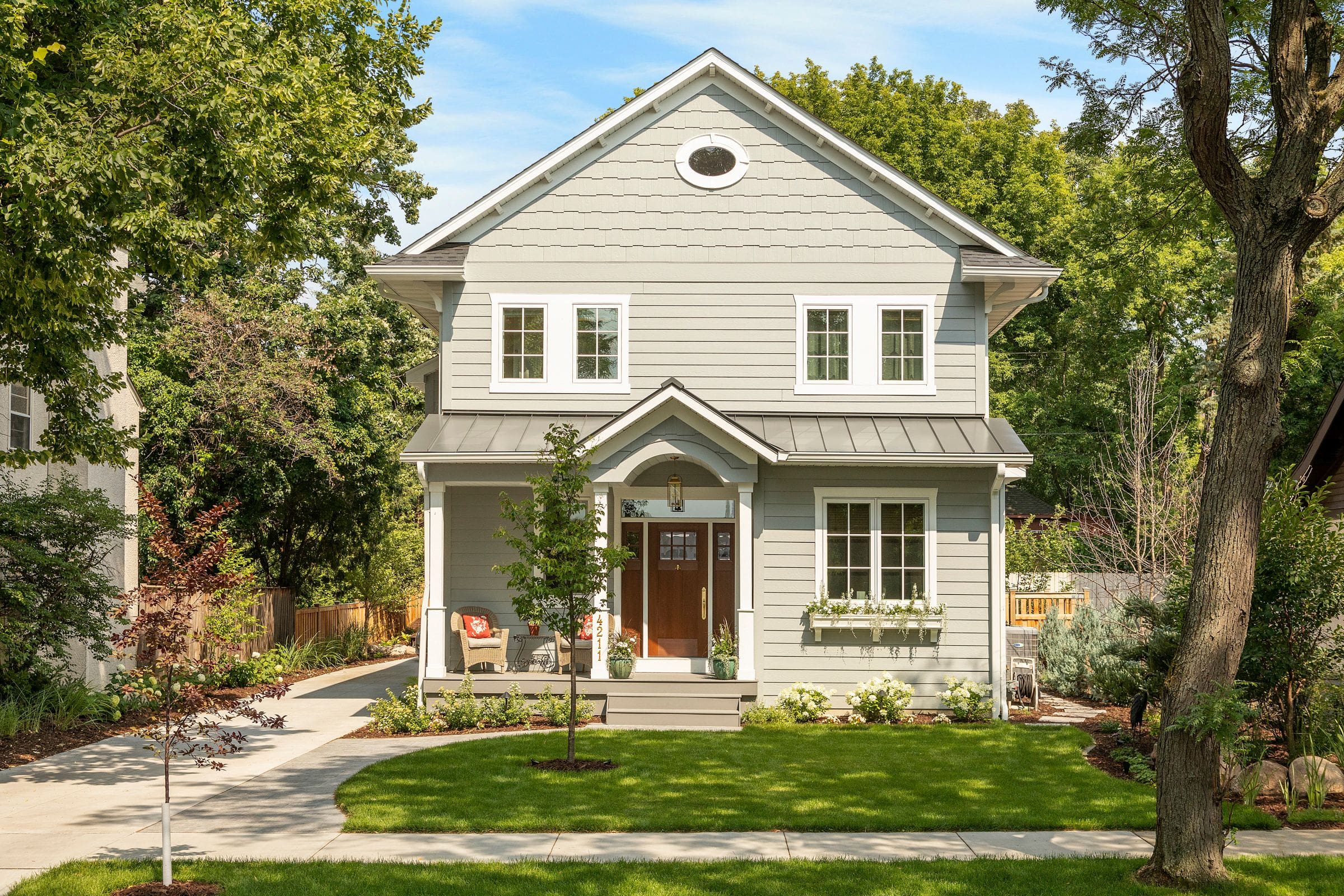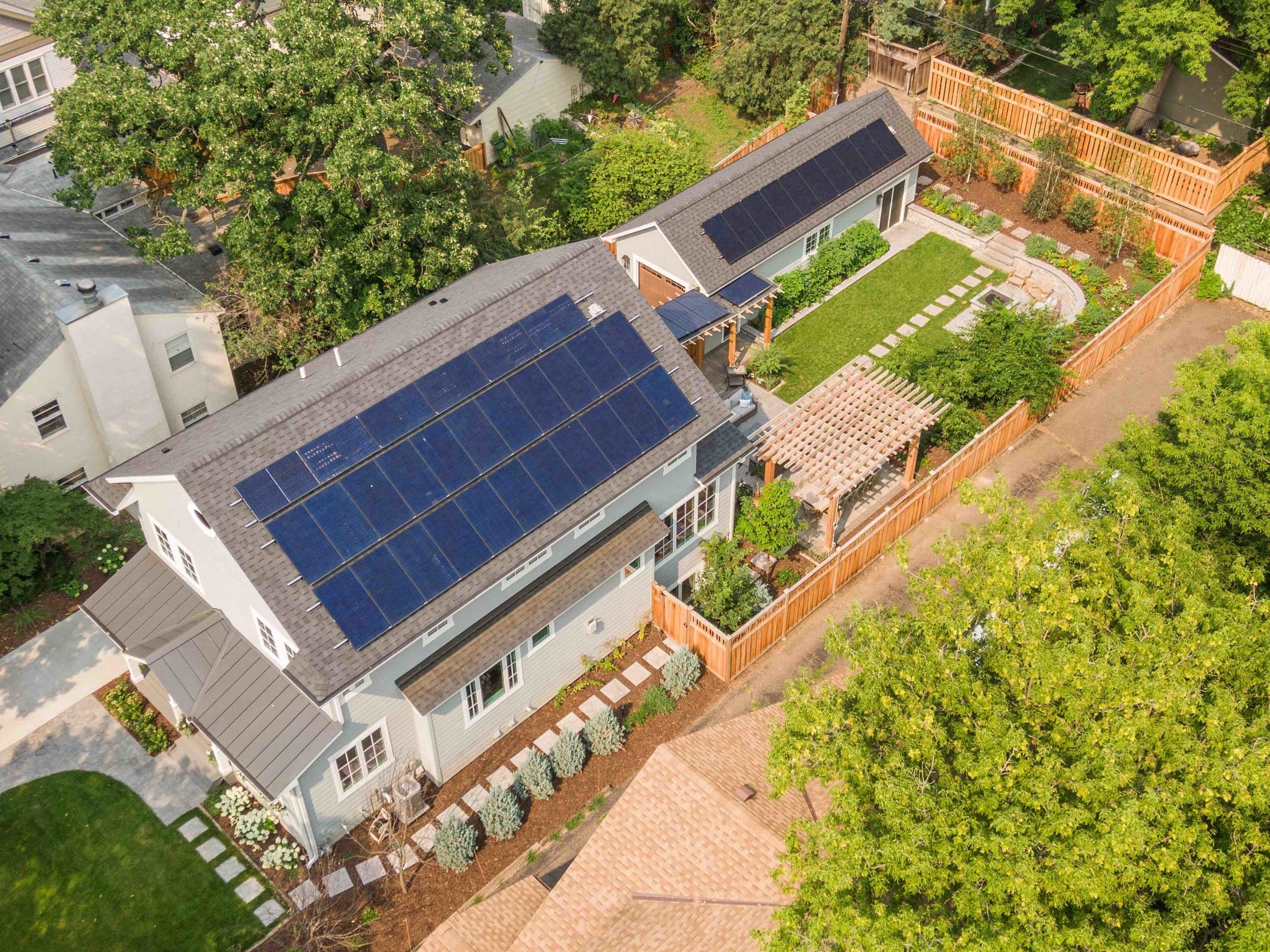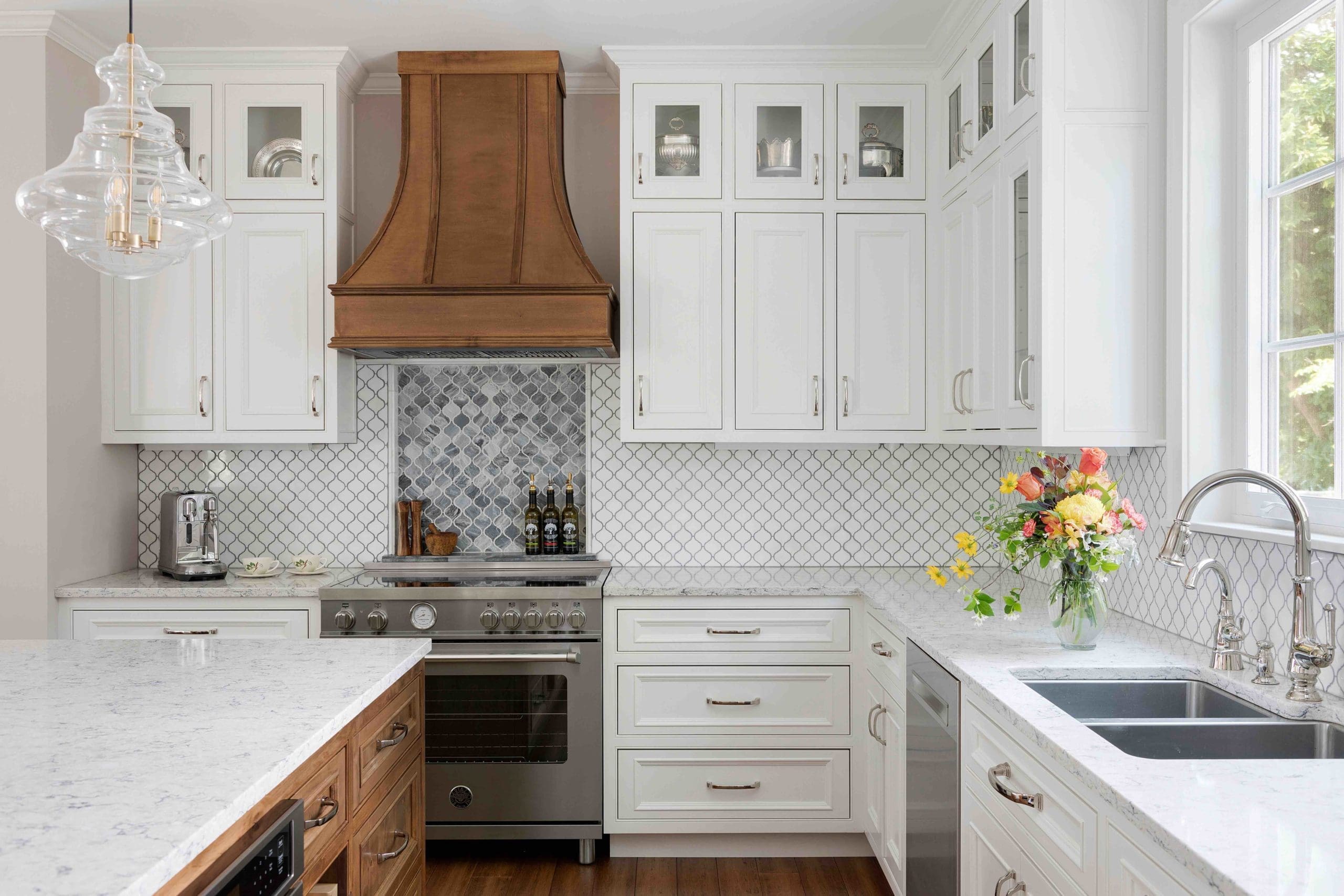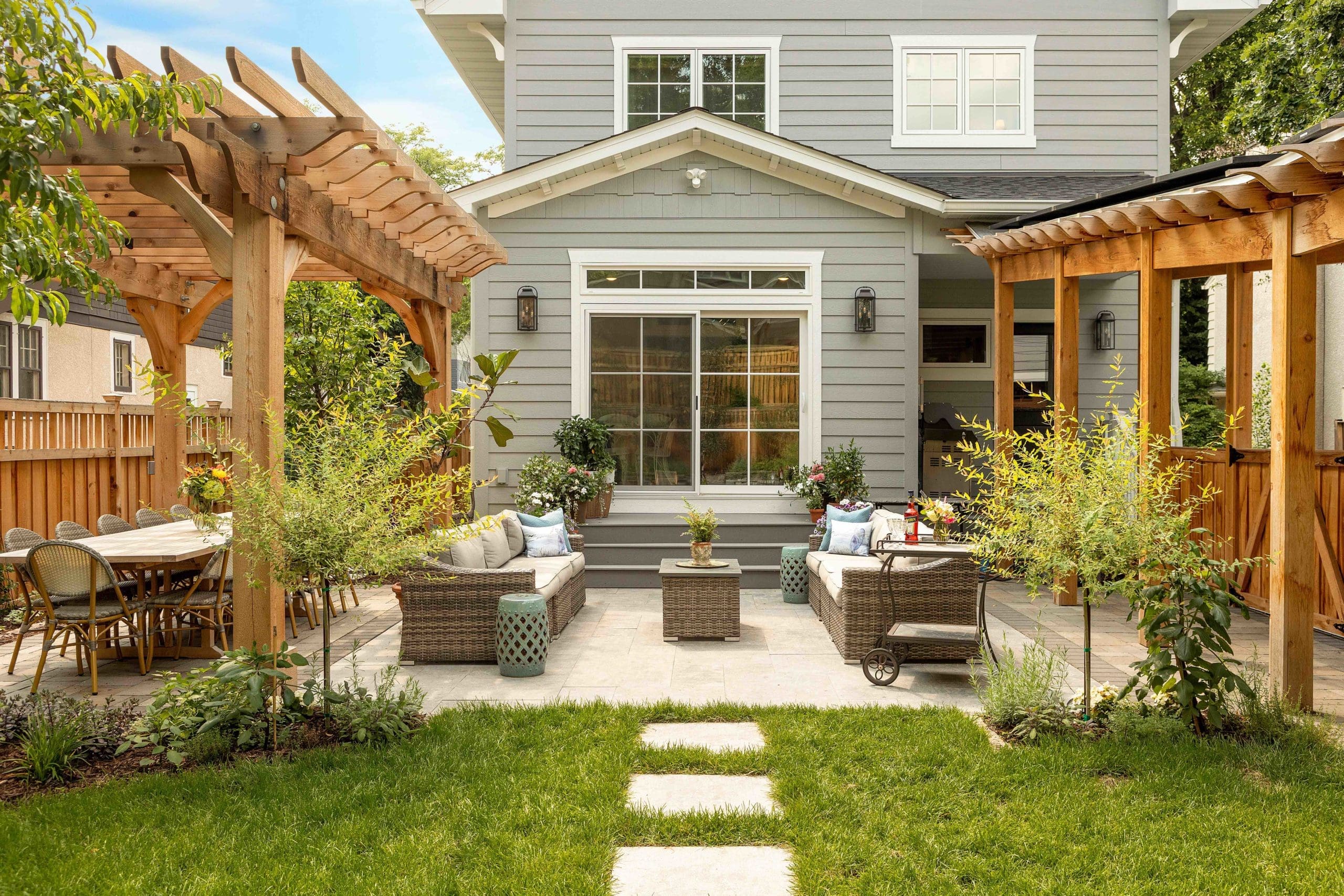
Photography by Spacecrafting
Centered Wealth financial advisor Jina Penn-Tracy has been an environmental advocate ever since she had cancer as a teen, caused by a medication her mother took while pregnant. Her husband, Scott, is an environmental engineer and the COO of a renewable energy technology business. So it makes sense that when it came time for the Twin Cities couple to move, they wanted not just an environmentally friendly home, but a net-zero one — that is, no carbon emissions.
It involved a lot of research and careful thought at every step, but in the end, they never had to trade design for efficacy. “There’s this false dichotomy that your own welfare and that of the planet are in conflict,” Jina says. “But that’s not true at all. What’s fundamentally good for the planet is good for us. It’s reframing the question and asking, How do I do well for myself, others and the planet all at the same time?” One shining example: their new net-zero home in the Linden Hills neighborhood of Minneapolis.

As with any new build, the structural components were important: foundation, framing, wiring, plumbing and the like. But in this case, every decision became paramount. Not only did each specific material choice raise or lower the 3,176-square-foot abode’s carbon footprint score, so too did its placement.
They worked with Amaris Homes to develop the “deep green” energy efficiency they craved, including a double-framing technique to stop energy transfer, a super insulated basement, and Kolbe triple-pane windows in casement. In one very notable design instance, their net-zero ambitions even dictated the house’s shape: long and narrow rather than square or wide, to allow for the maximum number of solar panels in the most efficient arrangement.
During the planning phase, Scott became COO of Renew Power Systems Inc., which engineers power controls circuitry that enables energy systems capabilities found in nature. “The more complex the system gets, the more stable it gets — just like nature,” Jina explains. The company’s state-of-the-art technology allows the couple to store energy from their solar and switch back and forth from the grid to off the grid, plus neighbors can join in the system, too.

After doing her homework on energy-efficient appliances, Jina realized she’d have to swap her beloved gas range for induction. “I love cooking with gas because you can see the flame and hear the sizzle,” she admits. “But now, I’m an induction convert. It’s super responsive; you can go down to a very low heat and have roaring high heat faster than gas.”
That’s perfect for the entertaining spaces she envisioned, ones that would accommodate their friends, adult children and growing families. A house that was beautiful but also a house where you can walk in with your shoes on. “I like to have a fun, eclectic environment where I’m not worried about dog fur or a child I’m chasing, trying to make sure nothing gets ruined,” she notes.

As for the interior design, that came with a measure of sustainability, too. Environmentally friendly ceramic tile, zero-VOC paint (Sherwin Williams’ apropos Unfussy Beige, to be exact) and spare use of common materials like marble were no-brainers. Adding a personal touch are rescued silver pieces Jina has collected from thrift shops. “They’re $3 at Goodwill because no one wants to polish them,” she exclaims with the giddiness that comes with a bargain. “They’re all over my house.”
And outside, a covered walkway to the garage allows for more solar panels to compensate for the window seat bumpout (a must-have compromise) that drove their score up to six. In the backyard, a rain garden, vegetables and fruit trees provide not only sustenance but a beautiful backdrop for garden parties. “When you focus on what really makes you happy, you need fewer material things and more people,” Jina muses, reflecting on their new net-zero home. “I want to inspire people, not impress people — there’s a difference.”


